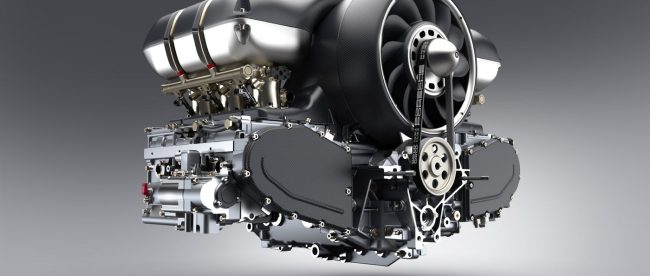The Cars that Karaoke

If your car is making an unexpected noise, that’s often the sign of a problem. Perhaps it’s a cliche, but you can probably imagine a car owner trying to mimic the errant sound to his or her mechanic — an idle clunk, piercing squeak, a loud grinding or something like that — and failing to do so. We make fools out of ourselves to mechanics because these noises may be the sign of all sorts of car problems, and we’re going to make sure those issues get addressed.
But while hearing an unexpected sound can be frustrating, for some owners of newer cars, there’s the opposite problem: they don’t hear the expected sounds. Or they wouldn’t, if car companies weren’t faking it.
As car technology has improved over the years, so has fuel efficiency — cars are able to get more power out of less juice. As a side effect, these engines also create less noise — long gone are the days of greasers intimidating one another before by revving their engines before an unsanctioned drag race. And for those customers who want that familiar roar, that’s a problem. What fun is driving a really neat sportscar if no one around you can hear how fast you could, theoretically speaking, go?
To account for this, some car manufacturers are pumping fake engine noises back into the experience. Different car companies have different ways to produce the fake sounds — per the Chicago Tribune, “BMW uses engine noise piped in through the speakers; Porsche uses a series of valves on its engine intake system to amplify its sound; Alfa Romeo’s 4C doesn’t use a muffler at all; and Jaguar uses a complex system of valves and exhaust baffling to crackle and spit.” But regardless, they are all part of an effort to make better cars sound the same as their predecessors.
And because the sounds are, by and large, fake, car markers aren’t bound to the sounds of yesteryear. Instead, the engine noises are subject to the market research processes which other aesthetic factors are subject to. For example, as the Washington Post reports, “for the 2015 Mustang EcoBoost, Ford sound engineers and developers worked on an ‘Active Noise Control’ system that amplifies the engine’s purr through the car speakers. Afterward, the automaker surveyed members of Mustang fan clubs on which processed ‘sound concepts’ they most enjoyed.”
Not everyone is a fan, though. Many purists object to the artificial sounds; one New York Times op-ed argued that these noises “are a deliberate deception,” likening them to “going to a concert and listening to a recording.” But these sounds are probably here to stay. As The Outline points out, not only are these sounds (real or artificial) a good way to get drivers to focus on the right thing at the right time, the sound is incredibly important to non-drivers: “the noise gives pedestrians (especially those who are visually impaired) a heads-up that a massive, body-destroying multi-ton hunk of steel is speeding at them.” And more to that point, lawmakers are beginning to agree. In 2016, per the Boston Globe, “the National Highway Traffic Safety Administration (NHTSA) announced it is adding a sound requirement for all new hybrid and electric vehicles at low speeds of up to 30 kilometers per hour (18.6 mph).”
So next time you take your car to the shop, remember, the sound you’re trying to mimic may not be a “real” one.
Bonus fact: The artificial sounds made by cars may be protectable intellectual property, and may even be something the corporations can trademark. But the naturally-occurring engine noises? Those probably aren’t protectable. In the 1990s, motorcycle giant Harley Davidson sued to prevent Yamaha and other competitors from using its sounds on their bikes. Yamaha, per the Los Angeles Times, argued that the sound its bikes made, while similar to that of Harley Davidson’s — was a byproduct of the engine and not something deliberately created — and therefore, not something. The court agreed.
From the Archives: The Special Sound a Mercedes-Benz Makes Before a Crash: Crashes can be loud, so Mercedes shuts off our ears.
